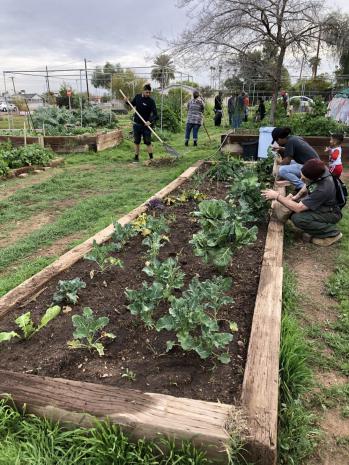
Breaking News
Part 2: How Immigration Will Kill America--Here's How It Works
 Parsley: Nature's Powerful Ally in the Fight Against Cancer and Chronic Disease
Parsley: Nature's Powerful Ally in the Fight Against Cancer and Chronic Disease
 Iran's Khamenei Killed & Austin Mass Shooting | PBD #750
Iran's Khamenei Killed & Austin Mass Shooting | PBD #750
Top Tech News
 US particle accelerators turn nuclear waste into electricity, cut radioactive life by 99.7%
US particle accelerators turn nuclear waste into electricity, cut radioactive life by 99.7%
 Blast Them: A Rutgers Scientist Uses Lasers to Kill Weeds
Blast Them: A Rutgers Scientist Uses Lasers to Kill Weeds
 H100 GPUs that cost $40,000 new are now selling for around $6,000 on eBay, an 85% drop.
H100 GPUs that cost $40,000 new are now selling for around $6,000 on eBay, an 85% drop.
 We finally know exactly why spider silk is stronger than steel.
We finally know exactly why spider silk is stronger than steel.
 She ran out of options at 12. Then her own cells came back to save her.
She ran out of options at 12. Then her own cells came back to save her.
 A cardiovascular revolution is silently unfolding in cardiac intervention labs.
A cardiovascular revolution is silently unfolding in cardiac intervention labs.
 DARPA chooses two to develop insect-size robots for complex jobs like disaster relief...
DARPA chooses two to develop insect-size robots for complex jobs like disaster relief...
 Multimaterial 3D printer builds fully functional electric motor from scratch in hours
Multimaterial 3D printer builds fully functional electric motor from scratch in hours
 WindRunner: The largest cargo aircraft ever to be built, capable of carrying six Chinooks
WindRunner: The largest cargo aircraft ever to be built, capable of carrying six Chinooks
How Phoenix Feeds The Hungry With Fresh Food While Saving Local Businesses and Farms

In Arizona, the city of Phoenix has managed to save dozens of farms and restaurants, while also getting free meals to those who need it most.
Between July and December in 2020, the Feed Phoenix program provided more than 50,000 meals to local residents—an amazing feat in itself, but only the beginning.
When the city received its CARES Act federal funding in April, it could have simply directed the money to food banks. Instead, it asked a nonprofit group, Local First Arizona, to take a more holistic approach to shore up the city's food system.
The resulting Feed Phoenix program has been a success on all fronts, connecting struggling farmers with restaurants and caterers in need of business. The nonprofit buys produce directly from the farms, then pays the restaurants to prepare and deliver free meals to citizens in need.
The meals are then distributed at 30 locations, such as food banks, free of charge to those in need. What's more, it is fresh, ready-to-eat food—much more nutritious than the canned and boxed items normally available at such places.
Local First Arizona was in a unique position to take on this project. For years, the charity has been working with about 3,000 locally-owned businesses to promote buying local.
"The city could have awarded one very large contract to one very large company to just prepare all of those meals," Kimber Lanning, the nonprofit's founder and executive director, told Bloomberg. "Instead, we decided to create a program to touch as many businesses as possible."

 March 2: nobody to call
March 2: nobody to call
 RNA Crop Spray: Should We Be Worried?
RNA Crop Spray: Should We Be Worried?

